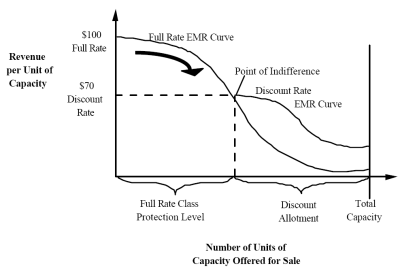(Recently, Pune-based Abhijit Athavale, Founder of Markonix, a technology marketing and learning development company with deep roots in Silicon Valley, wrote a book called “The Edge of Zero: High Tech Marketing in the Age of Falling Growth”, with co-author Peter Gasperini. We invited Abhijit to give us a short write-up about the book and an excerpt from the book, for the benefit of PuneTech readers.)
What High Tech Marketing is … and isn’t
Many industries suffer from an incomplete understanding of what purpose Marketing actually serves. High Tech has been amongst the worst offenders in this, and the misconceptions of Marketing’s role and domain in the Technology business has persisted in various forms and levels of severity for all of the industry’s 40+ years. Internal characterizations of Marketing’s domain tend to inexorably converge on the following set of simple descriptions:
- “Marketing is Sales”
- “Marketing is Customer Service”
- “Marketing manages Programs”
- “Marketing runs Promotions and Ads”
- “Marketing controls Pricing”
The insidiously deceptive factor common to the above statements is that they are all true – in part.
Does the above list encompass everything Marketing is supposed to do? Actually, NO. Operations and Engineering are quite correct in their assumptions that Marketing is the proper organization for handling the above mentioned problem areas. But there is much more to the proper practice of Marketing for High Tech than what was mentioned above.
It is a very broad field requiring depth and experience in both hard and soft disciplines, purely engineering and purely business fields, and both technical and customer interaction skillsets. And since these factors influence and interleave with each other, professionally complete High Tech marketers need to be able to swim these clashing currents without being pulled under or swept off to the side.
Marketing is, fundamentally, a LEADERSHIP role. The very act of initiating a Marketing plan to execute the strategy for a company and its products means identifying the Value propositions which will make a firm’s offerings compelling to its target market. This means a high Tech marketer must be able to simultaneously grasp the potential of the company’s engineering team, the aptitude of its operations arm, the expectations, desires and dreams of its customers, and the capacity of its sales force. When a Marketing plan is formulated correctly, an enterprise will have the knowledge to develop the kinds of products its customers will happily buy, which the factory can skillfully build, and the sales force can readily sell.
Our new book, ‘The Edge of Zero’ discusses challenges of high tech Marketing in the age of falling growth. Here’s an excerpt from ‘What Makes a Good Marketer’ chapter:
Crossfire – An excerpt from The Edge of Zero
If to do were as easy as to know what were good to do, chapels had been churches, and poor men’s cottages princes’ palaces. – Shakespeare, ‘The Merchant of Venice’
Marketers in High Tech can be overwhelmed by the 180 degree contradictions between the needs and desires of the Field and the Factory, especially at the junior level. Unfortunately, many choose the simplicity and expediency of picking a side. A technically oriented marketer will feel more drawn to their comfort zone thru siding with the Factory, whereas a more socially oriented or less technically savvy marketer will tend to gravitate towards the Field.
Either choice is extraordinarily destructive to the business as a whole. Borrowing liberally from basic Physics principles, one could make the analogy that Conservation of Energy – every action causes an equal and opposite reaction – takes hold in such companies in a very negative aspect, with long term crippling effects. By choosing a side, a Marketer reinforces and exacerbates any existing antagonism between the two warring camps.
A Marketer that fulfills his role properly is supposed to straddle the fence between Order and Chaos, reconciling them without forcing a damaging compromise on either. It’s no easy task, but skirting the challenge in favor of the easier path of taking sides creates a schism right down the center of the enterprise. It embeds conflict, distrust and friction between the Factory and Field, which ultimately translates into a complete disconnect between a company and its customers.
It boils down to a loss of vital information. The Factory cannot design and build good products and solutions in a vacuum, but can hardly expect to gain insight into customer concerns, difficulties and aspirations if the company salesmen are unable to deliver valued solutions and support from the Factory to those customers, building the foundation for a long term relationship of communication, trust and mutual support. If the Factory and the Field are divided, the enterprise is choosing a path of creating successful products by a combination of learning thru serial failures and hoping to come up with a lucky choice of feature sets along the way. In the end, this is like jumping out a plane without a parachute, hoping to find someone who is more thoughtfully equipped on the way down.
You can look inside the book here before buying a copy.
About the Author – Abhijit Athavale
Abhijit Athavale was born in Pune, India. He moved to the US for further education and lived and worked in the Silicon Valley before returning to Pune. He still lives in the same house on the same street. He has diverse interests – from hi-tech marketing to sports to WWII era history and mysteries and likes to read and write about them.
Abhijit studied Electricial Engineering in COEP, followed by a Masters in Texas A&M University, after which he spent 11+ years, ending as Senior Marketing Manager at Xilinx, developing the marketing strategy for their $150MM+ Xilinx Connectivity solution – including messaging, value proposition development and product positioning.
More recently, Abhijit has helping evangelize and market new technologies Markonix, a company he founded with the idea of helping lower the cost of marketing and learning for businesses worldwide.
Abhijit also founded and runs PuneChips, one of the technology community platform incubated by PuneTech. PuneChips is a network for Semiconductor, EDA and Embedded Systems professionals in the Pune (India) area. PuneChips provides networking and learning opportunities from Industry mavens to its members.
For more details see his Linkedin profile or follow him on twitter


![Reblog this post [with Zemanta]](http://img.zemanta.com/reblog_b.png?x-id=5e7592c3-1088-44c8-8d7f-41ad3faebda3)


![Reblog this post [with Zemanta]](http://img.zemanta.com/reblog_b.png?x-id=20f62a47-2591-405c-983b-65537d0f504d)


![Reblog this post [with Zemanta]](http://img.zemanta.com/reblog_b.png?x-id=1801f1ba-f66a-46d0-81ed-4210738d3b8e)



![Reblog this post [with Zemanta]](http://img.zemanta.com/reblog_b.png?x-id=f634e44f-76a2-4e8c-a355-a6ec0473e333)